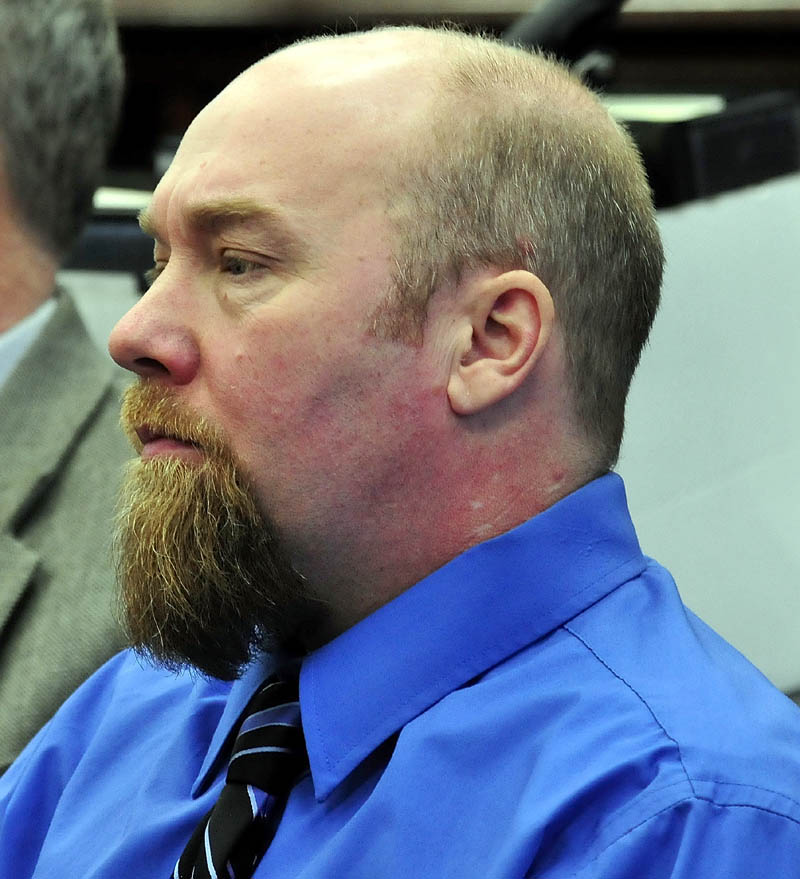SKOWHEGAN — Defense lawyers and state prosecutors painted different pictures of the man charged with the murder of Everett L. Cameron during closing arguments Tuesday.
The defense portrayed Robert Nelson, 41, as an innocent man caught in the middle of a faulty police investigation while prosecutors said he was a desperate drug addict who was the last known person to see Cameron shortly before the murder.
Cameron, who was prescribed oxycodone to treat lymphoma, was killed by a gunshot wound to the head on Oct. 31, 2009, on Town Farm Road in Anson.
Prosecutors said that Nelson’s desire for oxycodone pills that Cameron had would have provided a motive for the murder.
“Oxycodone pills are dangerous. They are highly addictive and addicted people are dangerous people,” said state prosecutor Leane Zainea.
She also said that as the last known person to talk on the phone with and see Cameron alive, Nelson had an opportunity for murder that no one else had.
She said that his inconsistent statements during his interviews with police and his own testimony in court Monday indicate that Nelson lied about his involvement in the murder. Zainea pointed to lies Nelson had told about his drug use and a story he fabricated to hide his gun ownership, which was prohibited by a previous criminal conviction.
“Common sense and reason tell us that he is a person hiding something,” Zainea said.
Defense attorney Phil Mohlar argued that Nelson should be found innocent because of flaws in the police investigation and the lack of physical evidence tying Nelson to the scene.
“State police did a poor investigation and put blinders on with regards to looking at anyone but Nelson as a suspect,” Mohlar said. “The state is now asking you to do as they did and presume Robert Nelson is guilty when the evidence presented falls woefully short.”
He said that police failed to look at other suspects.
“Cameron was reaching out to people that day and had contact with other people in the drug community. He made calls to other people. What about those people who called Cameron before Rob? What if they made arrangements with him?” said Mohlar.
He said that at least one other car was seen parked alongside Cameron’s truck that day.
Mohlar also said that Nelson’s actions the day of the murder — cutting wood and attending his four-year-old daughter’s birthday — were not those of a killer.
“This was just another day in the life of an innocent man,” he said. “He did take steps to obtain drugs around that time and he did use drugs. That’s not a good thing in one’s life but that’s who Rob Nelson was at that time.”
He said that Nelson, as an illegal drug user, would have had reason to lie to police about his drug use, and that as someone who had been previously convicted of an armed robbery would have had reason to lie about having a gun in his house.
Mohlar also argued that the investigation was structured to prove Nelson guilty. Mohlar asked the court to consider looking at the case from the standpoint that Nelson was innocent until proven guilty, rather than look for evidence to prove him guilty.
“What would Rob Nelson have done differently if found innocent? Nothing,” he said.
Superior Court Justice John Nivison will decide the verdict in the trial because Nelson waived his right to a jury earlier this month. Nivison said that because of the length of the trial and the amount of evidence presented it will take some time for him to review and deliberate the case. A verdict is expected sometime before the end of the month, he said.
Rachel Ohm — 612-2368
rohm@mainetoday.com
Send questions/comments to the editors.






Success. Please wait for the page to reload. If the page does not reload within 5 seconds, please refresh the page.
Enter your email and password to access comments.
Hi, to comment on stories you must . This profile is in addition to your subscription and website login.
Already have a commenting profile? .
Invalid username/password.
Please check your email to confirm and complete your registration.
Only subscribers are eligible to post comments. Please subscribe or login first for digital access. Here’s why.
Use the form below to reset your password. When you've submitted your account email, we will send an email with a reset code.